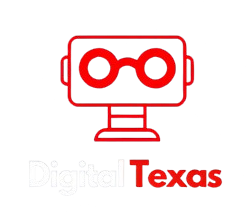Mastering Meta Interview Questions Digital Marketing Roles
Securing a position in digital marketing at Meta, a global leader in the tech and advertising space, is a significant milestone for professionals aiming to make an impact. Meta’s hiring process is designed to identify individuals who bring a unique combination of technical proficiency, creative thinking, and strategic insight. Whether the role involves managing campaigns, optimizing ad performance, or designing innovative strategies for Meta’s platforms, candidates must be prepared for a challenging yet rewarding process.
This comprehensive article explores Meta’s digital marketing interview process, including the types of questions to expect, insights into what Meta values in candidates, and detailed strategies to help you succeed.
Why Meta Is a Top Choice for Digital Marketers

Meta is not just a technology giant; it’s a company that has revolutionized how businesses interact with audiences through digital platforms like Facebook, Instagram, and WhatsApp. Its advertising solutions provide unparalleled opportunities for marketers to reach highly specific audiences with precision.
Working at Meta offers the chance to:
- Influence global advertising strategies.
- Gain access to cutting-edge tools and insights.
- Collaborate with top-tier talent across multiple disciplines.
- Shape the future of digital marketing and communication.
Landing a role in digital marketing at Meta means being at the forefront of innovation, working with billions of data points, and creating campaigns that influence industries worldwide.
Key Areas Evaluated in Meta Interview Questions Digital Marketing

Meta’s interview process for digital marketing roles evaluates candidates across critical competencies. Here’s a breakdown of the areas of focus:
- Strategic Marketing Planning
- Ability to develop cohesive marketing strategies aligned with business goals.
- Proficiency in understanding target audiences and market trends.
- Data-Driven Decision-Making
- Experience in analyzing campaign data to optimize performance.
- Familiarity with marketing metrics like ROI, CPA, and LTV.
- Creativity and Campaign Innovation
- Skill in crafting compelling, innovative campaigns tailored to diverse audiences.
- Ability to think outside the box and leverage Meta’s tools effectively.
- Technical Proficiency
- Expertise in digital tools, including Facebook Ads Manager, Instagram Insights, and analytics platforms.
- Knowledge of SEO, SEM, and programmatic advertising.
- Communication and Collaboration
- Strength in cross-functional teamwork with engineers, designers, and product managers.
- Clear and persuasive communication with stakeholders.
Sample Meta Digital Marketing Interview Questions and Answers
1. Describe a digital marketing campaign you led from start to finish. What were the results?
Purpose:
This question is designed to evaluate your ability to manage a digital marketing campaign through all its phases—planning, execution, and performance analysis. It also tests your ability to measure success and learn from the experience.
Approach to Answering:
- Start with the Campaign’s Objective:
Clearly articulate the purpose of the campaign. Was it to drive sales, increase brand awareness, grow a social media following, or improve engagement? A well-defined objective demonstrates strategic thinking. For instance:- “The goal of the campaign was to increase product sales by 25% within three months by leveraging targeted social media ads and email marketing.”
- Outline the Strategy and Planning Process:
Provide a detailed explanation of the strategy you used to achieve the objective. Mention key elements such as:- Platforms: Which platforms (Facebook, Instagram, Google Ads, etc.) were chosen and why.
- Audience Segmentation: How you identified and targeted specific audience segments based on demographics, behaviors, and interests.
- Content Creation: Describe the type of content used—videos, images, blog posts, etc.—and how it aligned with the campaign’s goals.
- Budget Allocation: How the budget was distributed across channels and why.
- “We used Instagram for visual storytelling to target millennials and Google Ads to capture search traffic for high-intent buyers. Our budget was split 70% on social media and 30% on search ads to maximize reach and conversion potential.”
- Describe the Execution Phase:
Explain how the campaign was implemented, including the tools and techniques used.- Mention tools like Facebook Ads Manager, Google Analytics, or CRM software for tracking performance.
- Discuss A/B testing for ads, email subject lines, or landing pages to optimize results.
- Highlight any creative elements, such as compelling calls-to-action or interactive content, that made the campaign unique.
- “We created three ad variations to test which visuals resonated most with our audience, and we optimized the highest-performing ad mid-campaign to reduce cost per acquisition (CPA).”
- Share Concrete Results:
Highlight measurable outcomes to demonstrate the campaign’s success. Use specific metrics to quantify achievements, such as:- “Achieved a 40% increase in social media engagement, a 20% increase in sales, and a 15% reduction in CPA.”
- If possible, include a comparison to previous campaigns or benchmarks. For example:
- “Compared to our previous campaign, this initiative resulted in a 2x return on ad spend (ROAS).”
- Discuss Key Learnings and Improvements:
Reflect on what worked well and what could have been improved. Show your ability to analyze performance and apply insights to future campaigns. For instance:- “We discovered that carousel ads outperformed static images by 30%, and we plan to prioritize carousel formats in future campaigns.”
- “While the campaign met its objectives, we identified a need for better retargeting strategies to capture drop-off users.”
Sample Answer:
“In a recent campaign for a retail client, our objective was to increase online sales by 25% over three months. After thorough market research, we identified Instagram and Google Ads as our primary platforms to target millennials with high purchasing intent.
Our strategy included creating visually appealing carousel ads on Instagram that highlighted product features and running search ads on Google with targeted keywords. We allocated 70% of the budget to Instagram and 30% to Google Ads based on audience behavior insights.
To optimize performance, we conducted A/B testing on ad creatives and landing pages. We monitored the campaign daily using Facebook Ads Manager and Google Analytics, making adjustments based on performance data.
By the end of the campaign, we exceeded our goal, achieving a 40% increase in engagement, a 25% boost in online sales, and a 10% lower CPA compared to previous efforts. One key learning was that carousel ads drove 30% higher conversions than static ads, which we plan to incorporate into future strategies. Additionally, we identified opportunities to improve retargeting, which could further enhance campaign performance in the long term.”
This structured response demonstrates your ability to plan, execute, and analyze a digital marketing campaign effectively while aligning with business objectives.
2. What are the most important metrics you track for a social media campaign? Why?
Purpose: To assess your analytical mindset and understanding of key performance indicators (KPIs).
Approach:
- Mention metrics like CTR, conversion rates, engagement rates, and cost per acquisition.
- Explain the significance of each metric and how it aligns with campaign goals.
- Discuss how you use data to optimize campaigns continuously.
3. How would you design a campaign to improve brand awareness for a new product on Instagram?
Purpose: To gauge your creativity and platform-specific expertise.
Approach:
- Propose a visually engaging strategy leveraging Instagram Stories, Reels, and influencer marketing.
- Emphasize user-generated content, hashtags, and interactive elements like polls and quizzes.
- Discuss tracking metrics such as reach, impressions, and engagement to measure impact.
4. Can you discuss a campaign that underperformed and how you addressed it?
Purpose: To evaluate your problem-solving skills and adaptability.
Approach:
- Be honest about the campaign’s challenges but focus on how you responded.
- Explain the diagnostic steps you took (e.g., revisiting audience segmentation, testing new creatives).
- Highlight how you adjusted the strategy and achieved improved results.
5. How do you stay updated on the latest trends and innovations in digital marketing?
Purpose: To determine your commitment to professional growth.
Approach:
- Mention resources like marketing blogs, industry conferences, and certification programs.
- Highlight Meta-specific resources like Facebook Blueprint.
- Share examples of how you’ve applied new trends to real-world campaigns.
Deep Dive: Tackling Role-Specific Scenarios at Meta
Meta’s interviews often include scenario-based questions requiring strategic thinking and practical solutions. Here’s an example:
Scenario Question:
“You’re tasked with increasing engagement on Facebook for a declining brand. What strategies would you implement?”
Sample Response:
- Conduct audience research to identify preferences and behaviors.
- Leverage Meta’s tools like Lookalike Audiences to refine targeting.
- Create engaging content such as live videos, polls, and user-generated content campaigns.
- Implement retargeting strategies using Facebook Pixel.
- Track performance metrics like engagement rate and adjust campaigns in real-time.
What Sets Meta Interviews Apart
Meta’s interview process is known for its rigor and specificity. Key differentiators include:
- Focus on Meta Platforms:
You’ll need deep knowledge of Meta’s advertising solutions and tools. - Emphasis on Results:
Be ready to back your experience with measurable outcomes and data-driven insights. - Cross-Functional Collaboration:
Meta values teamwork, so expect questions about working with diverse teams. - Behavioral and Technical Balance:
The interview will assess both your creative problem-solving and technical skills.
How to Prepare for Success
- Understand Meta’s Values:
Align your responses with Meta’s mission to build meaningful connections and empower businesses. - Practice Storytelling:
Use the STAR method (Situation, Task, Action, Result) to structure your answers. - Master Meta’s Tools:
Familiarize yourself with Facebook Ads Manager, Audience Insights, and other Meta advertising tools. - Study Case Studies:
Research successful campaigns on Meta platforms to understand best practices. - Mock Interviews:
Practice with peers or mentors to refine your responses and build confidence.
Conclusion: Excelling in Your Meta Digital Marketing Interview
Preparing for a digital marketing interview at Meta requires dedication, thorough research, and a strategic approach. When reviewing Meta Interview Questions Digital Marketing, focus on showcasing your expertise in crafting successful campaigns and aligning your skills with Meta’s mission. Meta is renowned for its innovative and fast-paced environment, where creativity, analytical abilities, and a deep understanding of its platforms are essential. By focusing on these areas, you can set yourself apart as a top candidate and leave a lasting impression.
First and foremost, your responses to Meta Interview Questions Digital Marketing should highlight your track record of success. Share concrete examples of campaigns you’ve led, emphasizing measurable outcomes such as increased engagement, improved ROI, or significant brand growth. Meta values candidates who can demonstrate their ability to deliver tangible results through strategic thinking and data-driven decision-making.
Additionally, showcase your mastery of Meta’s tools and platforms. Use your answers to the Meta Interview Questions Digital Marketing to illustrate your expertise with tools like Facebook Ads Manager, Instagram Insights, and other platforms. Explain how you’ve leveraged these tools to target audiences effectively, craft compelling creatives, and measure performance with precision. This familiarity with Meta’s ecosystem will underscore your readiness to excel in this role.
Creativity and problem-solving are equally vital when addressing Meta Interview Questions Digital Marketing. Prepare examples of how you’ve approached challenges in your marketing efforts, such as engaging niche audiences, adapting to trends, or working within tight budgets. These anecdotes will demonstrate your ability to think outside the box and align with Meta’s commitment to innovation.
Finally, ensure your answers align with Meta’s mission of connecting people and fostering community. Discuss how your work contributes to building meaningful relationships and creating value for users. When tackling Meta Interview Questions Digital Marketing, tie your experiences and strategies to Meta’s vision and highlight how you can contribute to advancing its goals through impactful digital marketing efforts.
By thoroughly preparing and focusing on Meta Interview Questions Digital Marketing, you can confidently demonstrate your skills and position yourself as the ideal candidate for this exciting role.
Top 5 Best marketing agencies & best marketing companies Appointment Services




